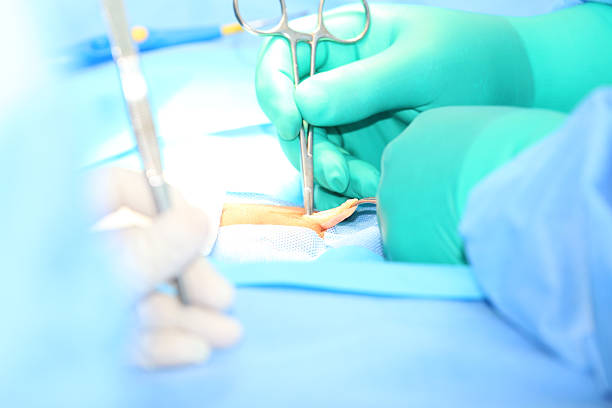It is common for people to experience sleep problems after surgery. In this blog post, we will discuss some guides on how to sleep after umbilical hernia surgery. We will also provide some helpful advice on recovering from the surgery itself.
What Is An Umbilical Hernia Surgery?
Umbilical hernia surgery is a procedure that is used to repair a hernia in the navel area. This type of hernia can occur when there is a weak spot in the abdominal wall, and the intestines or other abdominal organs protrude through it.
Most people who undergo surgery will stay in the hospital for one to two days afterward. During this time, you will likely be on a clear liquids diet as your digestive system recovers. You may also have some drainage tubes placed under your skin to help drain any excess fluid from the surgical site.
Once you are home, it is important to get plenty of rest and avoid strenuous activity for at least two weeks. This will help your incision heal properly and reduce the risk of complications. You should also avoid lifting during this time.
If you experience any pain, redness, or swelling at the surgical site, be sure to contact your doctor right away. These could be signs of an infection.

Guides For Sleeping After Surgery
It is important to get enough rest to heal properly. However, it can be difficult to sleep when you are in pain or have difficulty breathing. Here are some helpful guides on how to sleep after the surgery:
1. Use pillows to prop up your head and upper body. This will help you breathe easier and reduce pain.
2. Sleep on your side instead of your back. This will also help you breathe easier and reduce pain.
3. Try using a heating pad or taking a warm bath before bedtime to relax your muscles and ease the pain.
4. Avoid caffeine and alcohol before bedtime as they can interfere with sleep.
5. Establish a regular sleep schedule and stick to it as much as possible.
6. Avoid working or using electronic devices in bed.
7. Practice some relaxation techniques before bedtimes such as deep breathing or meditation.
8. Make sure your bedroom is dark, quiet, and cool to create an ideal environment for sleep.
9. To help you sleep better, reduce fluid intake, and take medicine to prevent nighttime waking due to urination.
Adjustable Bed Frame
Using an adjustable bed frame to make it easier to sleep. It is designed to help people who have trouble sleeping due to pain, difficulty breathing, or other medical conditions. The bed frame can be adjusted to accommodate your needs and provides a variety of positions to make it easier to sleep.
The frame can be adjusted to elevate your head and upper body, which can help you breathe easier and reduce pain. It can also be positioned so that you are sleeping comfortably instead of on your back. This position can also help you breathe easier and reduce pain.
Wedge Pillow
Using a wedge pillow can also help you sleep after surgery. The pillow is placed under your head and upper body to elevate them. This position can help you breathe easier and reduce pain. The pillow can also be used to prop up your legs. This position can help improve circulation and reduce swelling. The pillow is placed between your legs to support your hips and lower back.
Recliner Chair
Sleeping in a recliner chair can also help you sleep after surgery. The chair can be adjusted to elevate your head and feet. This position can help reduce pain and improve circulation. The chair can also be positioned so that you are sleeping comfortably.
Recovering from the surgery can take several weeks. It is important to take things easy during this time and avoid strenuous activity. You may need to take pain medication for a week or two after the surgery.
As you heal, you should start to feel better and have more energy. If you experience any problems or concerns, be sure to contact your doctor.

Hernia Pain
It is common to experience some pain and discomfort. The amount of pain you experience will depend on the severity of your hernia and the type of surgery you had. Most people report feeling better within a week or two after the surgery.
There are several things you can do to help ease the pain:
1. Take your pain medication as prescribed by your doctor.
2. Apply ice to the area for 20 minutes at a time, several times a day.
3. Take a warm bath or use a heating pad on the low setting for 20 minutes at a time, several times a day.
4. Avoid strenuous activity and lifting anything heavy for at least two weeks.
5. Sleep with pillows propped up under your head and upper body to help you breathe easier and reduce pain.
6. Practice relaxation techniques such as deep breathing or meditation.
If you are still experiencing pain after two weeks, be sure to contact your doctor. They may be able to prescribe additional medication or recommend other treatments.
Insomnia Sleeping Disorder
Insomnia is a common sleep disorder that can be caused by a variety of factors, including stress, anxiety, and medical conditions like hernias. If you’re having trouble sleeping, it’s important to talk to your doctor about possible treatments. There are several ways to treat insomnia, including medication, therapy, and lifestyle changes.
If your insomnia is caused by stress or anxiety, your doctor may recommend therapy or counseling. If your hernia is causing pain that makes it difficult to get some sleep, your doctor may prescribe medication to help relieve the pain. You can also try making changes to your lifestyle, such as avoiding caffeine and alcohol before bed, establishing a regular sleep schedule, and creating a relaxing bedtime routine.
Getting enough rest is important for your health and well-being. If your insomnia is caused by stress or anxiety, therapy or counseling may be recommended. If pain from your hernia is keeping you awake, medication may be prescribed to help relieve the pain.
Are Sleeping Pills Recommended By Doctors?
Yes, your doctor may recommend that you take a sleeping pill for a week or two after surgery to help with pain or anxiety. They will usually only prescribe a low-dose sleep aid.
These medications can cause drowsiness and should only be taken before bedtime. Be sure to follow the directions on the bottle and do not drink alcohol while taking them.
If you experience any side effects such as confusion, dizziness, or difficulty waking up, stop taking the medication and contact your doctor immediately.
Conclusion
In conclusion, it is important to get plenty of rest and sleep after umbilical hernia surgery. There are a few things you can do to make sleeping more comfortable, such as using pillows to prop up your head and upper body, sleeping on your side, and taking warm baths before bedtime.
